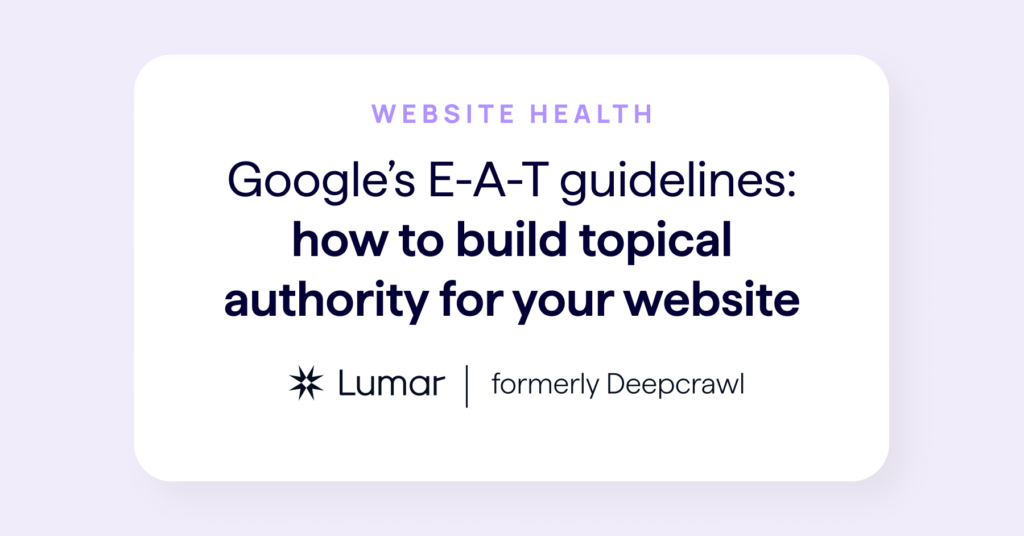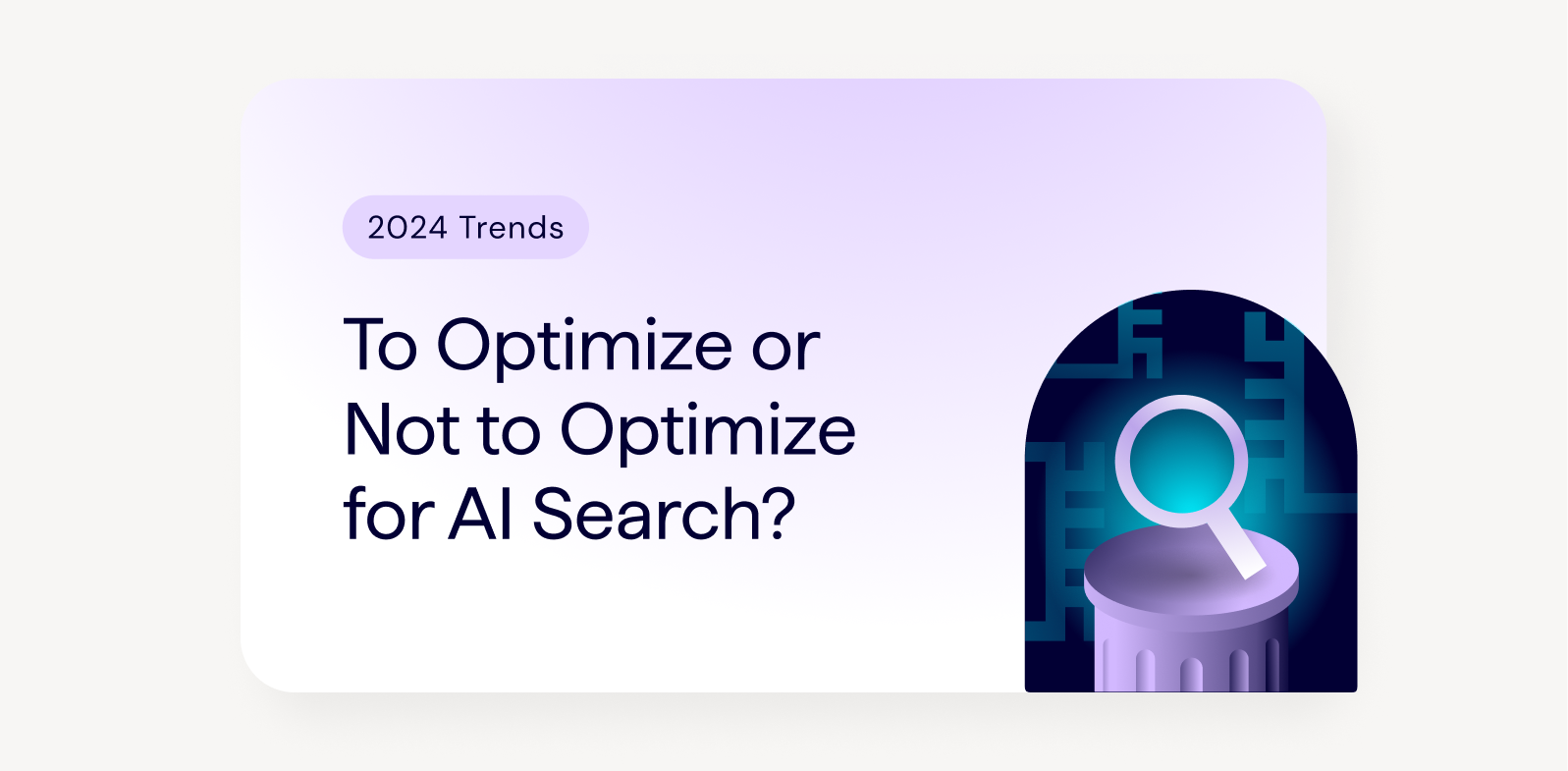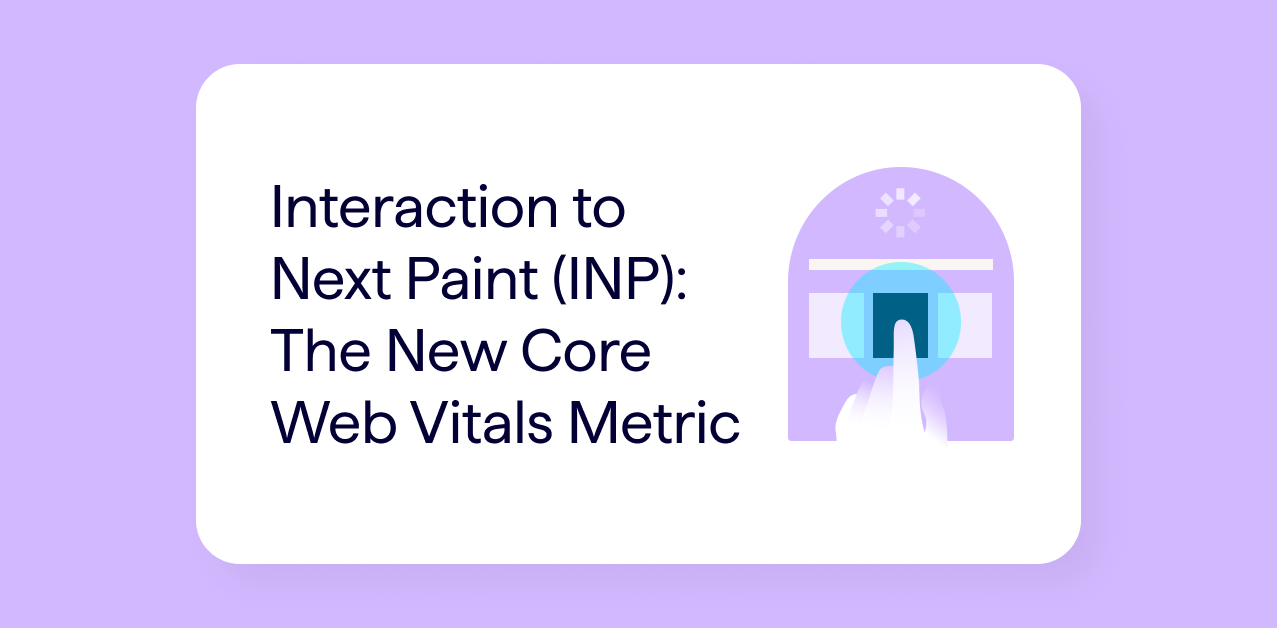If you want to create website content that is poised to rank highly in the search engine results pages (SERPs), it’s important to consider how your content is demonstrating expertise and trustworthiness, and how it’s building topical authority around the subjects that matter most for your brand. After all, a primary goal of Google and other search engines is to meet their users’ search intent in a way that is informative, and, more importantly, accurate.
Search algorithms are designed to find and rank the best, most relevant content for users. When a website consistently delivers high-quality content around certain subjects or topics, it’s more likely that the site will be considered an authoritative source and subject matter expert—by users and search engines alike.
Google’s “E-A-T” (expertise, authority, and trustworthiness) guidelines were developed to help their Search Quality Rating staff (actual humans!) evaluate and rate Google’s search engine results to drive improvements in their algorithms and improve the quality of content that gets delivered to users. Topical authority and “E-A-T” (expertise, authority, and trustworthiness) are related concepts, though not one and the same.
In this article, we’ll look at how you can apply E-A-T standards to build out topical authority for your website — and how these two ‘authority’-focused concepts can help your website team succeed in organic search.
What is topical authority? (And why it matters for SEO)
Topical authority refers to how search engines view a website’s credibility when it comes to the content it publishes around specific topics. Basically, it is subject matter expertise.
Google’s emphasis on “expertise” and “reputable websites” as indicators of page quality in their Quality Rater Guidelines (QRG) suggests that building a reputation for your website as a subject matter expert is likely to contribute to the “authority” value in E-A-T.
While E-A-T is not a direct ranking factor (more on that below), its concepts help inform the algorithms that do the ranking. So when Google views your website as an expert resource for a given topic, chances are, it’s more likely to rank your content on those subjects higher in the SERPs.
If you are trying to outrank a competitor in the SERPs, sometimes it is not enough to write a high-value, SEO-optimized article. While your content might tick every box on your optimization checklist, there’s a chance your domain may let you down with its lack of authority on the topics you cover.
If you want to outrank competitors in a particular industry, you need to double down on writing content that is topically relevant for this industry. By building out a library of related content that is relevant for a certain industry, or certain subject matter, you are presenting your website as an authoritative source in this field—or at least bringing your domain a step closer to getting recognized by search engines as such. If you build out a collection of relevant resources relating to a given topic, you could elevate your ranking ability. It’s important to note here as well that the people behind your content can also be an indicator of topical authority — having credible writers that are recognized by Google as subject matter experts elsewhere on the web may also contribute to your site being seen as an authoritative source (See section 3.2 of the Quality Rater Guidelines, excerpted below).
What are Google’s E-A-T Guidelines?
E-A-T stands for “Expertise, Authority, and Trustworthiness”. Google’s E-A-T guidelines are found within the Page Quality section of Google’s extensive document (129 pages!) on how their human Quality Raters should evaluate website content and search results.
While E-A-T guidelines themselves are not a direct ranking factor, they do give us significant insight into what Google is looking for when it comes to determining the quality of content on a website. We can use these insights to help guide SEO best practices for content development and to inform our strategies for building topical authority.
Regarding E-A-T and their Quality Rater Guidelines (QRG), Google Search Central explains:
Developing algorithmic changes to search involves a process of experimentation. Part of that experimentation is having evaluators—people who assess the quality of Google’s search results—give us feedback on our experiments. Ratings from evaluators do not determine individual site rankings, but are used help us understand our experiments. The evaluators base their ratings on guidelines we give them; the guidelines reflect what Google thinks search users want.
Google’s E-A-T guidelines are fundamentally a force for good. They were clearly designed with user safety and quality of information in mind.
Note: For those publishing content on ‘Your Money, Your Life’ (YMYL) websites (more on that below), Google’s E-A-T guidelines should play an even bigger role in informing your SEO strategies.
How does E-A-T relate to page quality?
E-A-T is one aspect of how Google views page quality. There are other considerations for building quality website content that’s poised to rank well (including establishing page purpose, creator information, website reputation, and backlinks), but meeting E-A-T standards can serve as an important guide for content creation.
Here’s how Google introduces E-A-T for its Quality Raters (if you want to do a deeper dive, it’s on page 19 of the QRG guidelines):
(Note: “MC” here refers to a page’s “main content.”)

Let’s break down the three components of E-A-T in a little more detail.
Demonstrating expertise for SEO
The guidelines state that: “High-quality pages and websites need enough expertise to be authoritative and trustworthy on their topic.” (page 22 of Google’s QRG.)
But how can a website demonstrate that it has this expertise?
Google wants readers to know why an article’s author has the authority to write about a particular topic. For instance, if you have produced an article with medical claims and advice, you need to explain why you have the authority to make such statements. You can add a bio at the end of each article to clearly represent who the writer is and why they have authority in the field.
You need to make sure the author’s bio truly represents who the author is. Even though Google is notoriously elusive about ranking factors, some senior figures at Google occasionally answer questions about the algorithm (see our “SEO Office Hours” library for a collection of this knowledge!).
In the past, Google’s John Mueller has answered questions about whether it is worth spending time on creating author bios and pages.
Mueller’s thoughts on the benefits of including author bios and pages:
“I do think with a lot of news websites, especially if you’re providing information that you want people to trust, then this certainly makes sense”.
Google also acknowledges in its Quality Rater Guidelines (page 20, if you’re following along!) that the expertise needed to rate a given piece of content depends largely on the topic and purpose of a given webpage.
The guidelines instruct quality raters to: “Think about the topic of the page. What kind of expertise is required for the page to achieve its purpose well? The standard for expertise depends on the topic of the page.”
Demonstrating authority for SEO
Google wants to know how authoritative a domain is when it comes to the content it produces on a given topic or within a given industry or niche.
It is important to note that before your website can become an authority within a niche, search engines need to understand what your website is about more generally.
In some senses, search engines’ understanding of language is similar to that of a baby’s. A baby doesn’t know that the word ‘orange’ can mean both a color and a fruit. Make sure search engine algorithms have the contextual clues to know precisely what topics you are covering.
For example, if you run a website for a local plumbing business, you need to use the content on your site not only to promote your services to human visitors, but also to give search algorithms enough context about what a plumber is and what they do. Think about what related topics exist that can help Google with disambiguation. You can assist the algorithms with disambiguation through the use of long-tail keywords in supporting content that provides more context to Google. This supporting content can then be internally linked to your main commercial pages as part of your website structure.
Using a technical SEO platform like Lumar Analyze can provide you with site-wide insights into how your internal linking is structured and help you identify any issues with your current internal links.
Once you have established topical relevance, you can then better establish topical authority. Creating a robust library of relevant, interrelated content pieces produced by industry experts can help to establish this authority. If you produce content around a wide range of unrelated topics instead of clustering your content efforts around core subjects, it may be less impactful for establishing your site as an authoritative source of information on the topics that matter most to your business. If your site’s content is overly broad, you may find that other websites (those that have a more focused collection of pages on related topics by established experts) are outranking your site’s pages on similar topics.
Demonstrating trustworthiness for SEO
Google’s Quality Raters Guidelines also mention “reputation” numerous times. Websites that have a negative reputation won’t be considered “high quality” when it comes to content. Here’s what the QRG document has to say on the matter of demonstrating trustworthiness through reputation:

Google wants to know whether your domain is trustworthy and if it has the necessary standing and authority to justify its ranking highly within a given topical niche. To help build trust and enhance your site’s reputation in the eyes of Google’s quality raters, you can employ best practices like adding external links to industry-leading research and obtaining topically relevant backlinks from other trustworthy, authoritative websites.
What are “YMYL” websites?
When Google refers to YMYL (“Your Money or Your Life”) pages, it’s referring to website content that can impact the safety, financial stability, health, or wellness of readers. With this in mind, pages that are categorized by Google as YMYL content are held to a higher standard than other types of website content.
In the QRG (page 10), Google lists several examples of topics that may be considered “YMYL”. These include content relating to:
- News and current events
- Civics, government, and law
- Finance
- Health and safety
- Shopping
- Groups of people
- Other topics relating to “big decisions or important aspects of people’s lives” (such as content that may influence college decisions, nutrition and fitness choices, or career choices)
Why is E-A-T especially important for YMYL websites?
Google wants to be particularly careful when judging the expertise, authority, and trustworthiness of this type of content, because their users’ safety and wellbeing may be at stake.
The Google Quality Rater Guidelines mention that a website’s reputation is particularly important when evaluating the quality of YMYL pages:
For YMYL informational topics, the reputation of a website or content creator should be judged by what experts in the field have to say. Recommendations from expert sources, such as professional societies, are strong evidence of a very positive reputation.
Carefully consider the purpose of the page, whether or not the topic is YMYL, and the kind of reputation information that would be most applicable. For example, customer ratings and reviews may be helpful for reputation research of online stores, but much less so for medical information websites.
E-A-T all boils down to integrity. Without aiming for high E-A-T scores, new and emerging YMYL websites run the risk of being seen as low quality or even potentially harmful to users — once search engines determine a YMYL website is low quality, it may struggle to rank any of its content highly in the SERPs. .
There’s no faking E-A-T; its ultimate purpose is to protect search engine users. Between Google’s human quality raters and their ever-evolving search algorithms, it’s imperative — particularly for YMYL pages — that the content you are publishing on your website is trustworthy, factual, and high quality.
Is topical authority an increasingly important part of SEO?
Google and other search engines are constantly working on new algorithms that will improve their ability to return the best content on the internet in response to their users’ search queries.
Recent algorithm announcements at Google have suggested an increased use of artificial intelligence and machine learning in its search engines — particularly when it comes to ‘understanding’ website content and how user queries fit into larger topics and concepts.
For example, in the years since launching RankBrain at Google, the company has said that the RankBrain algorithm helped their search products “understand how words relate to concepts. Humans understand this instinctively, but it’s a complex challenge for a computer.”
By building algorithms that better understand how search queries relate to larger concepts and topics, Google can serve its users with the information that is most relevant to their needs. And by building high-quality website content that both helps users and builds authority around the topics that are most relevant for your business, your site may be more likely to keep up with Google’s expanding work in this area.
The E-A-T guidelines demonstrate Google’s commitment to building its search engine with an eye toward delivering high-quality, trustworthy, and authoritative content. But building authority for your website in 2022 is about a lot more than just getting backlinks from other websites. It’s about the quality of your content, and your content’s relevance for users.
Technical SEO approaches can also be helpful when building authority and demonstrating topical relevance for the search engines seeking to understand your website — for example, utilizing robust internal linking strategies across your content, in conjunction with your adherence to E-A-T guidelines, can provide a powerful boost in demonstrating topical relevance and authority to search engines.

Establishing topical authority is an important part of creating an overall healthy website that is poised to rank well in search engines. You can learn more about how search engines like Google view your page quality and backlinks in our SEO Office Hours Library.
This post is part of Lumar’s series on Website Health. In this series, we are diving deep into each of the 7 categories of the SEO-Revenue Funnel to help digital marketing teams learn more about the many elements of search engine optimization that contribute to a high-performing, healthy website.





